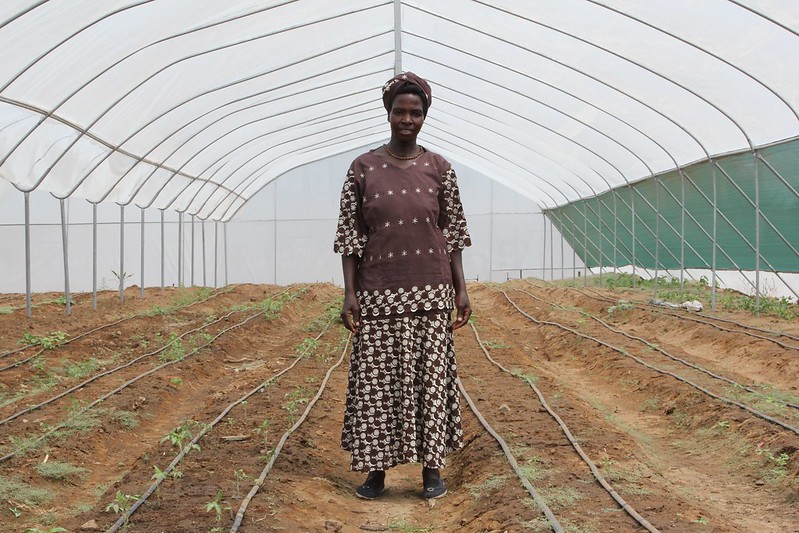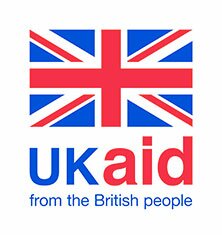Even before COVID-19, more than 820 million people did not have enough to eat, with 113 million coping with hunger so severe that it posed an immediate threat to life and livelihoods. The , with predictions that some 265 million people could be pushed into acute food insecurity, while short and long-term disruptions to health and nutrition services will cause a rise in the global prevalence of malnutrition, undermining progress toward the Sustainable Development Goals.
Against this background, the Maintains programme has carried out a rapid review of the literature on the impact of COVID-19 on nutrition. This is a summary of the key findings.
Individuals and households face multifaceted impacts of the disease, through reduced household incomes, increased expenses, and reduced availability of and access to affordable, nutritious foods. While the primary impact of COVID-19 will be mainly on adult health and mortality, this burden will shift to other groups including children due to the secondary effects of the outbreak on food insecurity and increases in other diseases, associated with a degradation of vaccination and other essential services. The under-five mortality rate is expected to rise due to a spike in childhood malnutrition and outbreaks of vaccine-preventable diseases, even as the adult mortality rate falls.
Impacts of the pandemic and the importance of nutrition
A number of key points about nutrition were identified in the review, many of which were highlighted in .
- The pandemic risks overwhelming health systems and degrading other critical services, which will lead to higher mortality from COVID-19 and also interrupt other life-saving services, including the delivery of essential nutrition actions.
- As well as being exposed to a higher risk of infection with COVID-19, the urban poor are particularly vulnerable to declines in household incomes and purchasing power, as well as the impacts of these on food security, dietary intake, and the risk of malnutrition. Incomes in remote rural areas will also be badly affected by trade disruptions, rising transportation costs, and a reduction in demand for commodities, particularly cash crops. Particularly vulnerable are those living in fragile and conflict-affected contexts, where there are already severe problems of logistics and distribution.
- Adequate nutrition is critical for a strong immune system; , making it paramount to reinforce the message that good nutrition is essential in building immunity and resilience.
- Complex social dimensions of health, lack of preparedness, and market disruptions were major determinants affecting nutrition during the West African Ebola outbreak. Distrust, misinformation, fear, and confusion limited the acceptability of nutrition messaging, but by using the traditional health community, alongside the mass media, some of these barriers were overcome.
- Based on the known benefits of breastfeeding and early evidence (albeit limited) that the COVID-19 virus is not present in breastmilk, continuation of breastfeeding is currently advised, regardless of COVID-19 status, and .
- Protecting access to long-term or humanitarian response nutrition services and food security is essential for reducing the risk of excess child mortality and can also be effective in the longer term, paying positive dividends with respect to wellbeing and food security years later. In contrast, .
Strategies to address nutrition insecurity
Flexible and adaptive approaches are needed that can respond to nutrition needs within different vulnerable groups and contexts during the different phases of the epidemic. These phased approaches should address the immediate need for nutrition services, while also preparing for a possible second wave of the epidemic. Where possible, interventions should be via government systems strengthening rather than parallel responses.
Governments and the international community need to engage in a number of ways to address the immediate causes of malnutrition and support long-term outcomes, including:
- Nutrition support: Maintain nutrition-specific and nutrition-sensitive programming including vaccinations, micronutrient supplementation, and young child feeding, modifying approaches where required; intensify screening and management of acute malnutrition to help prevent a surge in cases; strengthen community health service structures; minimise the risks of artificial feeding, and; support nutrition information management, surveillance, and monitoring. A systems approach at country level should link the health, agriculture, food, WASH, social protection, and education systems with nutrition.
- Food systems support: Keep systems running by including food system and food supply chain actors as essential services/key workers, including small shops and market vendors where possible, while protecting workers.
- Food quality support: Monitor food prices, food security, and malnutrition indicators, continue food fortification programmes, and support major food providers in offering continued food diversity.
- Social protection: Prioritise the continuity and expansion of social protection support to vulnerable households. Social protection programmes should take into account the need for a diversified household food basket adapted in light of price fluctuations, income losses, and nutritional needs.
- Market intervention and livelihood support: Support and protect medium-sized and smallholder farmers and their value chains through subsidies and tax allowances to promote availability and access to nutritious food.
With the challenge posed by COVID-19, it is vital that there is a united response across governments, the international community, donors, researchers, and sectors that acknowledges the key role of nutrition in reducing excess mortality and promoting economic recovery. Stakeholders should work together to ensure that nutrition services are designated as essential and are prioritised as part of national responses.
The full rapid literature review can be found here, authored by Laura Phelps, Independent Consultant, Shock-Responsive Social Protection.
All Maintains evidence and articles relating to COVID-19 can be found here.
About Maintains
Maintains aims to save lives and reduce suffering for people in developing countries affected by shocks such as pandemics, floods, droughts, and population displacement. This five-year programme, spanning 2018–2023, is building a strong evidence base on how health, education, nutrition, and social protection systems can respond more quickly, reliably, and effectively to changing needs during and after shocks, whilst also maintaining existing services. With evidence gathered from six focal countries – Bangladesh, Ethiopia, Kenya, Pakistan, Sierra Leone, and Uganda – Maintains is working to inform policy and practice globally. It also provides technical assistance to support practical implementation.
This output has been funded by UK aid from the UK government; however, the views expressed do not necessarily reflect the UK government’s official policies. Maintains is implemented through a consortium led by Oxford Policy Management www.opml.co.uk.



